The information on this website is for general information purposes only. Nothing
on this site should be taken as legal advice for any individual case or situation.
This information is not intended to create, and receipt or viewing does not
constitute, an attorney-client relationship.
© 2023 Laydon Law Group, PLLC. All Rights Reserved.
Website by North Country Website Design.
Contact Us Today!
Laydon Law Group, PLLC Upper Michigan Injury Lawyers (906) 448-4249 info@upinjurylawyers.comSlip and Fall / Premises Liability
Upper Michigan Slip and Fall Attorneys
Slip and fall cases are covered by an area of law known as premises liability. In slip and fall and other premises liability cases, the injured person claims that the person in control of the property failed to exercise reasonable care to make the property safe. When this happens, the injured person may be able to recover for the damages caused by the dangerous condition of the property. Note that the person in control of the property could be the owner of the land or the rightful possessor, such as a lessee or tenant. If you or a loved one were injured on someone else’s property, contact Laydon Law Group, PLLC, the Upper Michigan Injury Lawyers, at (906) 448-4249, info@upinjurylawyers.com, or click here for a free consultation at any time, including nights and weekends.What Other Kinds of Cases Are Considered Premises
Liability?
Slip and fall cases often arise when someone slips or trips on an icy, wet or uneven sidewalk, parking lot or store aisle. However, premises liability claims may include any situation in which another person fails to exercise reasonable care to make their property safe for others. The following types of cases are examples of conditions that could give rise to a lawsuit for damages: • An icy, wet or uneven sidewalk, parking lot or store aisle. • A trampoline injury. • A bounce house, inflatable slide or swing set. • A chair in a business establishment that collapses or breaks. • A tree branch or tree is neglected and falls on someone. • An exposed nail from a floorboard punctures a guest’s foot. • A store shelf collapses or a poorly placed product falls from the shelf and hits someone. • A child runs into a sharp corner of an open drawer. • A dresser or other piece of furniture falls on someone. • A staircase in disrepair causes someone to fall. • A ditch or hole that someone falls into, especially when the opening is not obvious to the injured person. • Faulty wiring or an unsafe electrical outlet burns or electrocutes someone.The Visitor’s Status Determines What Steps the
Property Owner Must Take to Make the Property Safe
for the Visitor
Under Michigan law, the status of the person entering onto another’s property determines what steps, if any, the person in control of the property must take to make the premises safe and to protect the visitor from harm. A visitor’s status may be one the following: 1. Invitee (business customer) 2. Licensee (social guest) 3. TrespasserWhat Must a Business Owner Do to Make the Property Safe for Customers?
A customer who lawfully enters a business is considered an invitee. An invitee is entitled to the greatest level of protection under Michigan premises liability law. Generally, the business owner must exercise reasonable care to make the property safe for the invitee. This includes not only warning the invitee of a dangerous condition, but also inspecting the property and making it safe by performing any necessary repairs. A business owner in Michigan will be liable for damages caused to an invitee if the business owner knew or should have known of a dangerous condition on the property and failed to correct, repair, or warn the invitee of the defect. Whether the business owner should have known of the dangerous condition will often depend on how long the condition existed. For example, if you slip on a puddle at a grocery store, the longer that the puddle was there, the better your chance of winning your case. You may be able to prove the amount of time the condition existed by the testimony of other customers or the store’s video surveillance footage. It is important to keep in mind that a person may not be able to recover if the dangerous condition is open and obvious. On the other hand, the duty of an invitee to look out for his or her own safety is relatively minimal. The customer is only required to keep a “casual” lookout for obvious dangers.Can a Homeowner be Liable to Social Guests Under Michigan Premises Liability Law?
Yes. Just because you are in someone’s private home or apartment does not mean that you have no protection under the law. In this case, you are considered a “licensee”. The duty owed to a licensee is similar, though not identical, to the duty of care owed to an invitee. To establish liability in a slip and fall case or other premises liability lawsuit, the injured person must show the following: 1. The person in control of the property (homeowner or tenant, for example) knew or had reason to know of an unreasonably dangerous condition and should have expected that the injured licensee (social guest) would not discover or notice the danger. 2. The person in control of the property (homeowner or tenant, for example) failed to exercise reasonable care to make the property safe and failed to warn the licensee of the unreasonably dangerous condition. 3. The licensee had no reason to know, and in fact did not know, of the unreasonably dangerous condition. However, a property owner does not owe a duty to a licensee to inspect the land to make it safe for the licensee’s visit.Can Someone Recover if They Were Trespassing?
Usually, no. A possessor or owner of land owes no duty to a trespasser to exercise reasonable care to make the property safe for the trespasser. Further, there is no duty to exercise reasonable care for the safety of a trespasser when the property owner is engaged in activities on the land. There are, however, a few situations in which the person in control of the land may be responsible for injuries or death to a trespasser. These can be found at MCL § 554.583 and are as follows: 1. The possessor of the property engaged in willful and wanton misconduct. 2. The possessor knew, or should have known, of the existence of the trespasser and failed to exercise reasonable care to avoid harm to the trespasser due to active negligence. 3. The possessor knew, or should have known, that the trespasser often trespassed on a certain portion of the land and the possessor failed to exercise reasonable care when engaged in an activity, on that part of the land, that carried a risk of death or serious bodily injury. Additionally, a trespassing child may be afforded greater protection than a trespassing adult, under what is commonly known as the “attractive nuisance doctrine.” A classic example is a property owner with a swimming pool who knows that kids often trespass and swim in the pool. The owner may have a duty to build a fence or otherwise exercise reasonable care to protect the children from drowning. It is important to keep in mind that there are exceptions to the above general rules. For example, an owner of property held open to the public for recreational use, at no cost, is not liable for negligence. The property owner, however, is responsible for intentional misconduct, gross negligence, or willful and wanton wrongdoing.What Damages Can I Recover?
Unlike with car or truck accidents, the injured victim will not be able to turn to his or her no-fault auto insurer for benefits. However, the injured person may recover damages from the person or business in control of the property. You may be entitled to damages that include: • Medical expenses. • Lost income. • Lost earning capacity. • Physical pain and suffering. • Fright and shock. • Mental anguish. • Denial of social enjoyments and pleasures. • Humiliation, embarrassment, and mortification. • Disability and disfigurement.What Deadlines Apply to My Michigan Slip and Fall / Premises
Liability Case?
Michigan has strict deadlines that must be met. If they are not, you may lose your ability to make a claim or bring a lawsuit. The following time limits generally apply: • Under MCL § 600.5805, the injured party has three (3) years from the date of the injury or death to file a lawsuit. • Note that a lawsuit under the Dramshop Act must be filed within 2 years from the date of injury or death. Such a claim may be brought against a bar by an injured person when the bar over-serves alcohol to an already-intoxicated patron who then injures an innocent third party. MCL § 436.1801. • Also note that other deadlines may apply, including when bringing claims against governmental entities.Have an Upper Michigan Slip and Fall Attorney Evaluate Your Case at
No Cost
Our Upper Peninsula personal injury attorneys can help you determine: • Applicable deadlines; • Proper parties to sue; • Available sources of payment; • Legal theories to pursue. Our Upper Michigan slip and fall lawyers can analyze your case and inform you of your options at no cost. If we do take your case, we only earn a fee if we recover for you. If we are not successful, it costs you nothing. If you or a loved were injured on another person’s property, we can help. Contact Laydon Law Group, PLLC, the Upper Michigan Injury Lawyers, at (906) 448-4249, info@upinjurylawyers.com, or click here for a free consultation.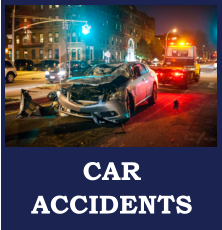
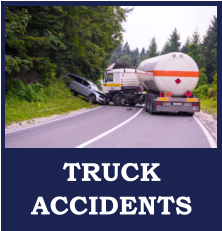

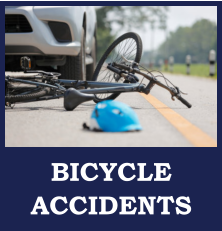
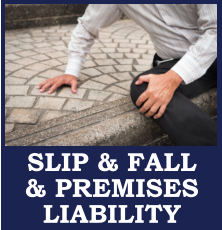




LAYDON
LAW GROUP, PLLC


The information on this website is for general
information purposes only. Nothing on this site should
be taken as legal advice for any individual case or
situation. This information is not intended to create,
and receipt or viewing does not constitute, an attorney-
client relationship.
© 2023 Laydon Law Group, PLLC. All Rights Reserved.
Website by North Country Website Design.
Contact Us Today!
Laydon Law Group, PLLC Upper Michigan Injury Lawyers (906) 448-4249 info@upinjurylawyers.comSlip and Fall /
Premises Liability
Upper Michigan Slip
and Fall Attorneys
Slip and fall cases are covered by an area of law known as premises liability. In slip and fall and other premises liability cases, the injured person claims that the person in control of the property failed to exercise reasonable care to make the property safe. When this happens, the injured person may be able to recover for the damages caused by the dangerous condition of the property. Note that the person in control of the property could be the owner of the land or the rightful possessor, such as a lessee or tenant. If you or a loved one were injured on someone else’s property, contact Laydon Law Group, PLLC, the Upper Michigan Injury Lawyers, at (906) 448-4249, info@upinjurylawyers.com, or click here for a free consultation at any time, including nights and weekends.What Other Kinds of
Cases Are Considered
Premises Liability?
Slip and fall cases often arise when someone slips or trips on an icy, wet or uneven sidewalk, parking lot or store aisle. However, premises liability claims may include any situation in which another person fails to exercise reasonable care to make their property safe for others. The following types of cases are examples of conditions that could give rise to a lawsuit for damages: • An icy, wet or uneven sidewalk, parking lot or store aisle. • A trampoline injury. • A bounce house, inflatable slide or swing set. • A chair in a business establishment that collapses or breaks. • A tree branch or tree is neglected and falls on someone. • An exposed nail from a floorboard punctures a guest’s foot. • A store shelf collapses or a poorly placed product falls from the shelf and hits someone. • A child runs into a sharp corner of an open drawer. • A dresser or other piece of furniture falls on someone. • A staircase in disrepair causes someone to fall. • A ditch or hole that someone falls into, especially when the opening is not obvious to the injured person. • Faulty wiring or an unsafe electrical outlet burns or electrocutes someone.The Visitor’s Status Determines
What Steps the Property Owner
Must Take to Make the Property
Safe for the Visitor
Under Michigan law, the status of the person entering onto another’s property determines what steps, if any, the person in control of the property must take to make the premises safe and to protect the visitor from harm. A visitor’s status may be one the following: 1. Invitee (business customer) 2. Licensee (social guest) 3. TrespasserWhat Must a Business Owner Do to Make
the Property Safe for Customers?
A customer who lawfully enters a business is considered an invitee. An invitee is entitled to the greatest level of protection under Michigan premises liability law. Generally, the business owner must exercise reasonable care to make the property safe for the invitee. This includes not only warning the invitee of a dangerous condition, but also inspecting the property and making it safe by performing any necessary repairs. A business owner in Michigan will be liable for damages caused to an invitee if the business owner knew or should have known of a dangerous condition on the property and failed to correct, repair, or warn the invitee of the defect. Whether the business owner should have known of the dangerous condition will often depend on how long the condition existed. For example, if you slip on a puddle at a grocery store, the longer that the puddle was there, the better your chance of winning your case. You may be able to prove the amount of time the condition existed by the testimony of other customers or the store’s video surveillance footage. It is important to keep in mind that a person may not be able to recover if the dangerous condition is open and obvious. On the other hand, the duty of an invitee to look out for his or her own safety is relatively minimal. The customer is only required to keep a “casual” lookout for obvious dangers.Can a Homeowner be Liable to Social
Guests Under Michigan Premises Liability
Law?
Yes. Just because you are in someone’s private home or apartment does not mean that you have no protection under the law. In this case, you are considered a “licensee”. The duty owed to a licensee is similar, though not identical, to the duty of care owed to an invitee. To establish liability in a slip and fall case or other premises liability lawsuit, the injured person must show the following: 1. The person in control of the property (homeowner or tenant, for example) knew or had reason to know of an unreasonably dangerous condition and should have expected that the injured licensee (social guest) would not discover or notice the danger. 2. The person in control of the property (homeowner or tenant, for example) failed to exercise reasonable care to make the property safe and failed to warn the licensee of the unreasonably dangerous condition. 3. The licensee had no reason to know, and in fact did not know, of the unreasonably dangerous condition. However, a property owner does not owe a duty to a licensee to inspect the land to make it safe for the licensee’s visit.Can Someone Recover if They Were
Trespassing?
Usually, no. A possessor or owner of land owes no duty to a trespasser to exercise reasonable care to make the property safe for the trespasser. Further, there is no duty to exercise reasonable care for the safety of a trespasser when the property owner is engaged in activities on the land. There are, however, a few situations in which the person in control of the land may be responsible for injuries or death to a trespasser. These can be found at MCL § 554.583 and are as follows: 1. The possessor of the property engaged in willful and wanton misconduct. 2. The possessor knew, or should have known, of the existence of the trespasser and failed to exercise reasonable care to avoid harm to the trespasser due to active negligence. 3. The possessor knew, or should have known, that the trespasser often trespassed on a certain portion of the land and the possessor failed to exercise reasonable care when engaged in an activity, on that part of the land, that carried a risk of death or serious bodily injury. Additionally, a trespassing child may be afforded greater protection than a trespassing adult, under what is commonly known as the “attractive nuisance doctrine.” A classic example is a property owner with a swimming pool who knows that kids often trespass and swim in the pool. The owner may have a duty to build a fence or otherwise exercise reasonable care to protect the children from drowning. It is important to keep in mind that there are exceptions to the above general rules. For example, an owner of property held open to the public for recreational use, at no cost, is not liable for negligence. The property owner, however, is responsible for intentional misconduct, gross negligence, or willful and wanton wrongdoing.What Damages Can I Recover?
Unlike with car or truck accidents, the injured victim will not be able to turn to his or her no- fault auto insurer for benefits. However, the injured person may recover damages from the person or business in control of the property. You may be entitled to damages that include: • Medical expenses. • Lost income. • Lost earning capacity. • Physical pain and suffering. • Fright and shock. • Mental anguish. • Denial of social enjoyments and pleasures. • Humiliation, embarrassment, and mortification. • Disability and disfigurement.What Deadlines Apply to My
Michigan Slip and Fall / Premises
Liability Case?
Michigan has strict deadlines that must be met. If they are not, you may lose your ability to make a claim or bring a lawsuit. The following time limits generally apply: • Under MCL § 600.5805, the injured party has three (3) years from the date of the injury or death to file a lawsuit. • Note that a lawsuit under the Dramshop Act must be filed within 2 years from the date of injury or death. Such a claim may be brought against a bar by an injured person when the bar over-serves alcohol to an already- intoxicated patron who then injures an innocent third party. MCL § 436.1801. • Also note that other deadlines may apply, including when bringing claims against governmental entities.Have an Upper Michigan Slip and
Fall Attorney Evaluate Your Case at
No Cost
Our Upper Peninsula personal injury attorneys can help you determine: • Applicable deadlines; • Proper parties to sue; • Available sources of payment; • Legal theories to pursue. Our Upper Michigan slip and fall lawyers can analyze your case and inform you of your options at no cost. If we do take your case, we only earn a fee if we recover for you. If we are not successful, it costs you nothing. If you or a loved were injured on another person’s property, we can help. Contact Laydon Law Group, PLLC, the Upper Michigan Injury Lawyers, at (906) 448-4249, info@upinjurylawyers.com, or click here for a free consultation.
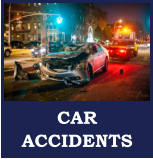


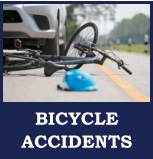
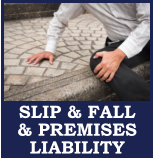



LAYDON
LAW GROUP, PLLC



906-448-4249
Upper Michigan Injury Lawyers
LAYDON LAW GROUP, PLLC
Injury and Wrongful Death
Upper Michigan Injury Lawyers
LAYDON LAW GROUP, PLLC
Injury and Wrongful Death




































